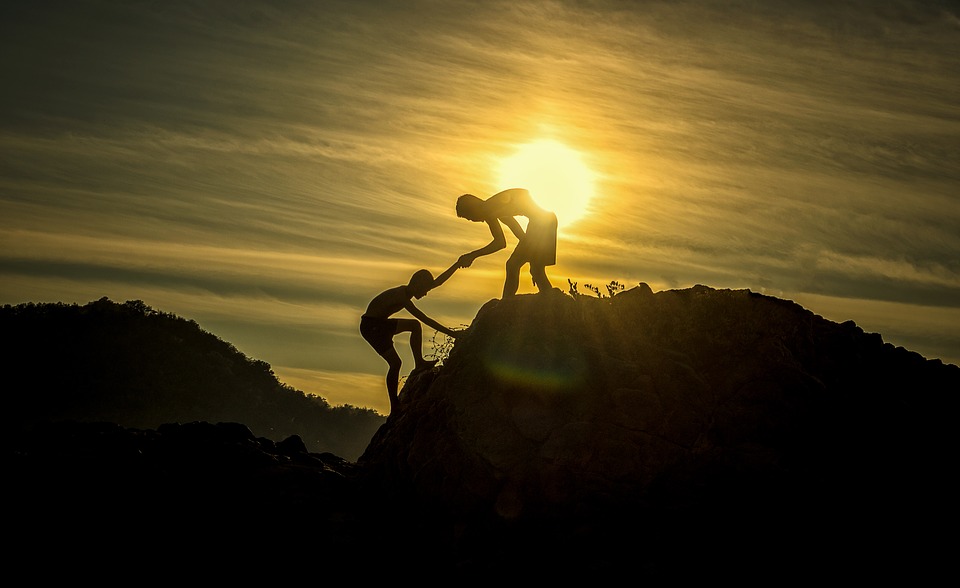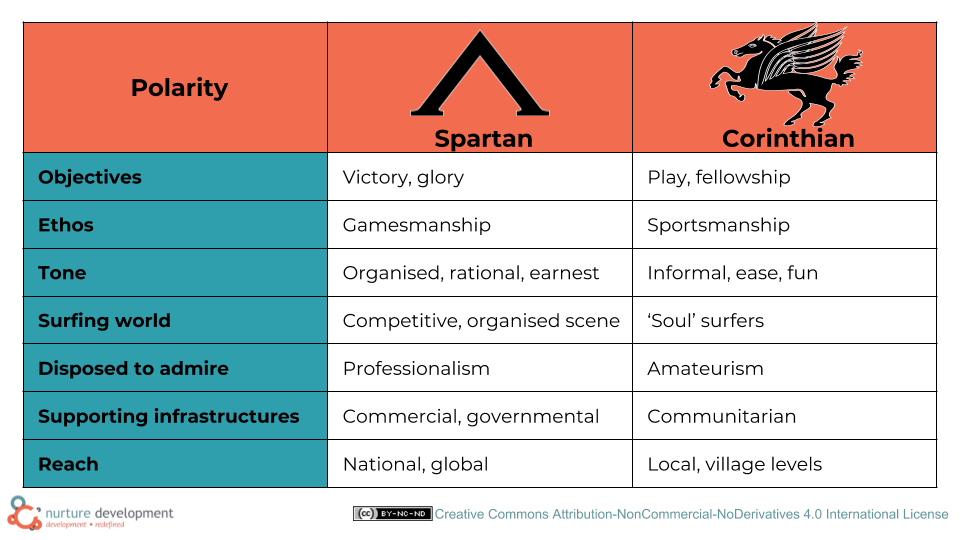
Sport as an asset for Community Building
This is part one of a two part post on sport as an asset for community building.
The origin stories of nearly all team sports can be traced back to a community of people, grouping up to have fun and deepen their sense of mutuality.
The values of belonging, care, and community become harder to hold on to, as local sports clubs grow in size and fame. The creep towards a performance oriented business model, that promotes elitism, is plain to be seen in clubs like Manchester United, which was formed in 1878 as Newton Heath LYR Football Club by the Carriage and Wagon department of the Lancashire and Yorkshire Railway depot at Newton Heath and which in 2017, according to Forbes had a net worth of of $3.69 Billion USD (ref: The World’s Most Valuable Soccer Teams 2017) A focus on national and international achievements, past or future, has a way of redirecting the early more Corinthian (cooperative values) story, towards the Spartan (competitive) narrative that is solely about being the best.
The table below charts the shift:
 Table 1.1 (Nurture Development 2018, Creative Commons Licence)
Table 1.1 (Nurture Development 2018, Creative Commons Licence)
In our work with sporting organisations and those who are simply interested in folks being more active in their communities, we at Nurture Development are really keen on supporting a Corinthian approach to life and sport. We are less concerned with trying to change the minds of those who take a more Spartan outlook.
In Canada we have worked with the True Sport Foundation, five Community Foundation and 33 sporting organisations to support them to think about how sport can be an asset for community building. It turns out that there are lots of ways by which that can happen, and most of them happen “off the field of play (or court)”, so to speak. As with our work in Canada, at the heart of each affective community building effort, is a commitment by those involved to ask different questions at the local/neighbourhood level. Such as: “what do the wider community want for this place (the neighbourhood we all share), and how if at all can we support?”
Recently we have started training Sports Partnerships in the UK, and are truly excited at the potential we are seeing.
Next week we’ll share a couple of engaging examples of what can happen when sports is viewed as an asset for community building and where clubs don’t treat their communities as:
- fundraising machines
- volunteer base
- player gene pool
It’s not what you Get, it’s what you Give
People will always engage most, with those who are willing to give as much as they get.
As the poet Maya Angelou noted:
“I’ve learned that you shouldn’t go through life with a catcher’s mitt on both hands; you need to be able to throw something back.”
Sadly far too many local sporting clubs are more interested in their own agendas and futures than they are in the wider wellbeing and interests of the communities in which they are located. Local clubs play a critical role in local communities, but so too does fun, local economy, culture and community building itself. Hence clubs, that solely push their particular brand of sport and vie for sporting accolades, really miss a trick in terms of promoting good relations with their neighbours. In the final analysis people don’t care what you know or what you’re good at, until they know that you care and that you’re also looking out for the common good.
Start Where People Are At
Not everybody will wish to engage in traditional sporting activities; they’ll journey towards wellbeing in their own way. The trick is to have a community wide conversation about: “what people do care about enough to take action on?” For some their passion is football, for others it’s looking after a neighbours’ plants while they’re away on holidays. When it comes to mobilising community action there is no wrong door.
In the same way that amazing things happen in our personal lives when we care more about others than ourselves, amazing things can happen for your sporting club when you care more about the wellbeing of the wider neighbourhood than your own agenda.
Local Sports Clubs as Neighbourhood Conversation Conveners
So, imagine what would happen if local sporting organisations decided to join with their neighbours to uncover and connect all the hidden talents and passions that exist in their neighbourhoods. In the very neighbourhoods that gave birth to them, we might add. And imagine they convened discovery conversations and listening campaigns not for their own self-interest, but for the good of the community. Well, we don’t need to imagine, because it’s already happening. What we see happening is that these clubs have incredible convening power, so when they ask open questions, like: “what do you care about enough to act upon”, or some of the Good Life Conversation questions: Good Life Conversation downloadable PDF, they automatically tap into an incredible reservoir of community capacity and potential. This process both builds communities from the inside out, and over time increases the level of trust and affection people hold in these local clubs. Not surprisingly, often their volunteer base and club loyalty grows too, creating a win for everyone.
Proving in the end, if we’re prepared to go slow and include all, cooperation trumps competition.
Cormac Russell & Chris Chinnock.

Sarah Frost
Thanks for this Cormac and Chris – great to be reminded of the great approach of true sport and my visit there in 2011 – (link to blog: http://sarahefrost.blogspot.com/2011/06/not-just-about-game-of-hockey.html?m=0)
Also working with comic relief on their levelling the field programme which seeks to use sport as a vehicle for social change in terms of increasing gender equality and empowerment of women and girls – read more here – https://www.comicrelief.com/news/levelling-field-empowering-women-and-girls-through-sport . Your insights above will be helpful to us – as ever!
chris shaw
you have just described our sea swimming and sandbank walking and swimming – broad range of skills aspirations and ages – but all of same sociability and not a single constitution or scrap of process whatsoever – but plenty of shared endevour and experience!!